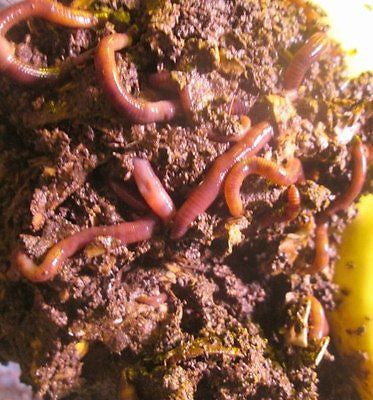Indicators on Red Wiggler Express You Should Know
Indicators on Red Wiggler Express You Should Know
Blog Article
Red Wiggler Express Things To Know Before You Get This
Table of ContentsThe Best Guide To Red Wiggler ExpressSome Known Questions About Red Wiggler Express.5 Simple Techniques For Red Wiggler ExpressHow Red Wiggler Express can Save You Time, Stress, and Money.The smart Trick of Red Wiggler Express That Nobody is Discussing
And the prospering Red Worm population? Also in the lot that was established up directly in front of backyard composters with existing Red Worm nests.
Lots of varieties, including Red Wigglers, European Nightcrawlers, and Lumbricus species were brought over from the European continent. Yet here's the thingNative or not - and as talented as they are at being able to make it through in a wide-range of environments and conditions -. Simply put, they are much a lot more likely to socialize in any type of active composting systems you have established, than they are to wander off and start destroying the environment.
Origins call for oxygen for respiration and count on smooth airflow within the dirt to grow. When it rainfalls, dirt can come to be saturated with water, lowering the oxygen available and preventing nutrient absorption. To keep an optimum balance, the dirt should allow water to drain pipes effectively, leaving sufficient room for air to sustain root health
Our Red Wiggler Express Statements

When it pertains to worms for composting, what enters your mind? If you were an earthworm dog breeder, supplier, or simple gardener, then you 'd understand that red wiggler worms are the excellent worms for vermicomposting. To find out more about these planet marvels, reviewed a few of the red worm facts below.
(https://www.choice.directory/hickory/agricultural-parts-suppliers/red-wiggler-express)However if they stretch their bodies, you'll have the ability to see the stripes on their skin. When elevating worms such as red wiggler worms, you need to have the ability to understand exactly how to make great use of them. When you have the ability to keep and care for their environment well, and additionally feed them the appropriate sort of natural wastes, then they'll have the ability to generate nutrient-packed and quality-rich worm spreadings for you (also known as worm poop or compost).
Getting The Red Wiggler Express To Work
What do worms consume? Well, these red wriggler worms can be fed with cooking area scraps and garden wastes.

This actions makes them well-suited for life in worm bins, compost heap, and other restricted areas where natural waste is plentiful. Producing an ideal setting for red wigglers needs a thoughtful technique. Think about the adhering to essential elements to care for red wigglers in the house and ensure their health: Make use of a bedding of shredded newspaper or cardboard.

Red wiggler worms recreate by laying tiny, lemon-shaped eggs in safety cocoons. These cocoons are generally transferred in the bed linen and hatch into child worms within a couple of weeks.
The Buzz on Red Wiggler Express
Their versatility and strength have actually made them a popular option for vermicomposting in numerous regions worldwide. Yes! They can endure from a range of 32F to 90F. They are incredibly versatile animals. Take into consideration protective procedures for extremely extreme temperature levels such as: Protecting the worm container with layers of straw or leaves.

When caring for your red wigglers it is very important to keep in mind to: 1) K.I.S.S (Keep it Simple) and 2) every little thing in small amounts. These guidelines relate to feeding your compost worms, watering your worm bins, and almost every little thing else included in caring for them. Just remember - you can constantly add even more food later (however it's hard to get rid of feed once it's been contributed to a container!).
Because I fed the red wigglers and garden compost worms too a lot, they weren't able to maintain up and over time the older food went uneaten and created anaerobic problems that killed the worms. Below're the 6 golden policies for how commonly and exactly how much to feed your worms: Guideline # 1: Moderation!
An Unbiased View of Red Wiggler Express
Leftover food will certainly lead to anaerobic problems that will certainly eliminate your real-time worms. Policy # 6: After the very first feeding, feed the worms 1/3 to 1/2 of their weight.
Report this page